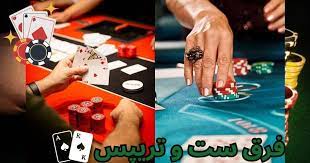In recent years, the world of sports تک بت ورزشی ورود has experienced a surge in popularity, fueled by the accessibility of online platforms and the glamorization of wagering in mainstream media. While many view betting as harmless entertainment, others raise concerns about its ethical implications and potential for harm. In this article, we delve into the complex landscape of betting, exploring the ethical dilemmas it presents and the responsibility of both individuals and society in mitigating its negative effects.
At its core, betting involves risking money on the outcome of an uncertain event, typically a sports match, with the hope of winning more money in return. On the surface, it may seem like a harmless pastime, akin to playing a game of chance. However, the reality is far more nuanced. For some, betting can escalate from a casual hobby to a compulsive behavior, leading to financial ruin, strained relationships, and even mental health issues.
One of the primary ethical concerns surrounding betting is its potential to exploit vulnerable individuals, particularly those who are susceptible to addiction. Research has shown that problem gambling disproportionately affects certain demographics, such as young adults, low-income individuals, and those with pre-existing mental health conditions. The proliferation of betting advertisements and promotions, especially on digital platforms and during sporting events, further normalizes and incentivizes risky behavior, potentially luring vulnerable individuals into a cycle of addiction.
Moreover, the integrity of sports itself can be compromised by the prevalence of betting. Match-fixing and insider betting scandals have tarnished the reputation of various sports leagues, raising questions about the fairness and legitimacy of competitions. When athletes, coaches, or officials are involved in betting-related misconduct, it not only undermines the spirit of sportsmanship but also erodes public trust in the integrity of the games.
In light of these ethical concerns, it is imperative for both individuals and society as a whole to adopt measures to promote responsible betting practices and minimize harm. Education plays a crucial role in raising awareness about the risks associated with excessive gambling and empowering individuals to make informed choices. This includes providing resources for problem gambling prevention and intervention, as well as promoting a culture of responsible gambling within sports organizations and betting operators.
Regulatory frameworks also have a vital role to play in safeguarding the interests of consumers and preserving the integrity of sports. Governments and regulatory bodies should implement robust measures to prevent underage gambling, restrict the advertising of betting services to vulnerable populations, and monitor betting activities to detect and deter illicit behavior. Additionally, sports leagues and governing bodies must enforce strict codes of conduct and integrity measures to prevent match-fixing and other forms of corruption.
Ultimately, the ethical dilemma of betting lies in finding the balance between individual freedom and societal responsibility. While betting can offer entertainment and excitement to many, it must be approached with caution and mindfulness of its potential consequences. By promoting responsible gambling practices, fostering transparency and integrity in sports, and addressing the underlying social and economic factors that contribute to problem gambling, we can strive to create a safer and more ethical environment for all stakeholders involved.

